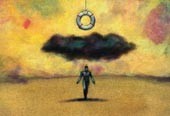Peer Reviewed
Feature Article Psychiatry and psychology
Is it possible to distinguish bipolar depression from unipolar depression?
Abstract
Clinical features can help determine whether a patient’s depressive episode is more likely to be unipolar depression or bipolar disorder. The likely diagnosis influences treatment decisions.
Key Points
- Knowing whether a depression is more likely to be unipolar depression or a presentation of bipolar disorder is important because the treatments of unipolar depression and bipolar depression differ.
- There are currently no accepted diagnostic criteria for bipolar depression and depressed patients with bipolar disorder are often misdiagnosed as having unipolar depression (major depressive disorder).
- Diagnostic uncertainty is likely in depressed patients with ambiguous past histories of hypomania or mania or family histories of bipolar disorder and in young patients presenting only with recurrent depressive episodes.
- Certain clinical features (signs or symptoms and various characteristics of illness course and family history) are more common in bipolar depression than in unipolar depression, and vice versa.
- A ‘probabilistic’ approach is suggested to the diagnosis of bipolar I depression in a patient with a major depressive episode and no clear prior episodes of hypomania or mania, based on the differential likelihood of specific depressive clinical features being experienced.
Purchase the PDF version of this article
Already a subscriber? Login here.

